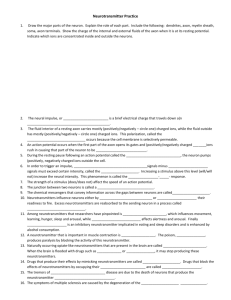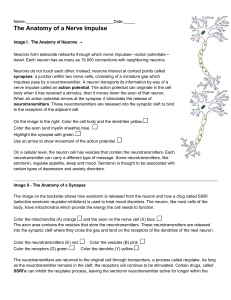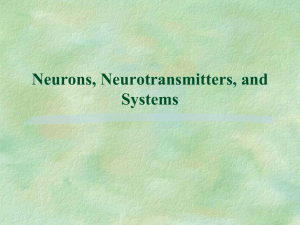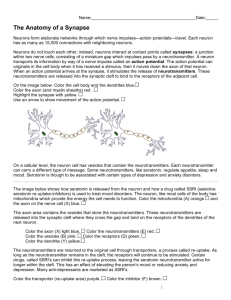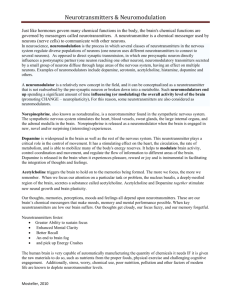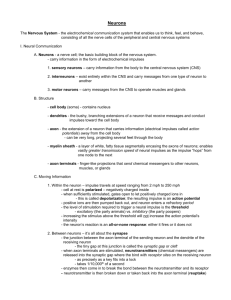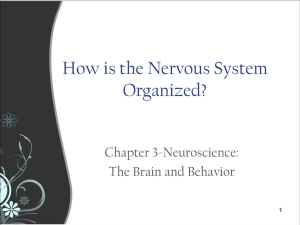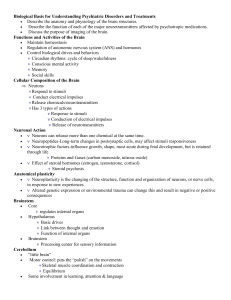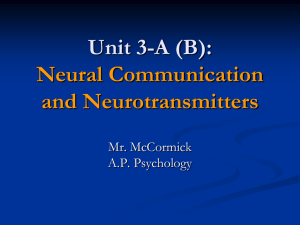Neurotransmitters
advertisement
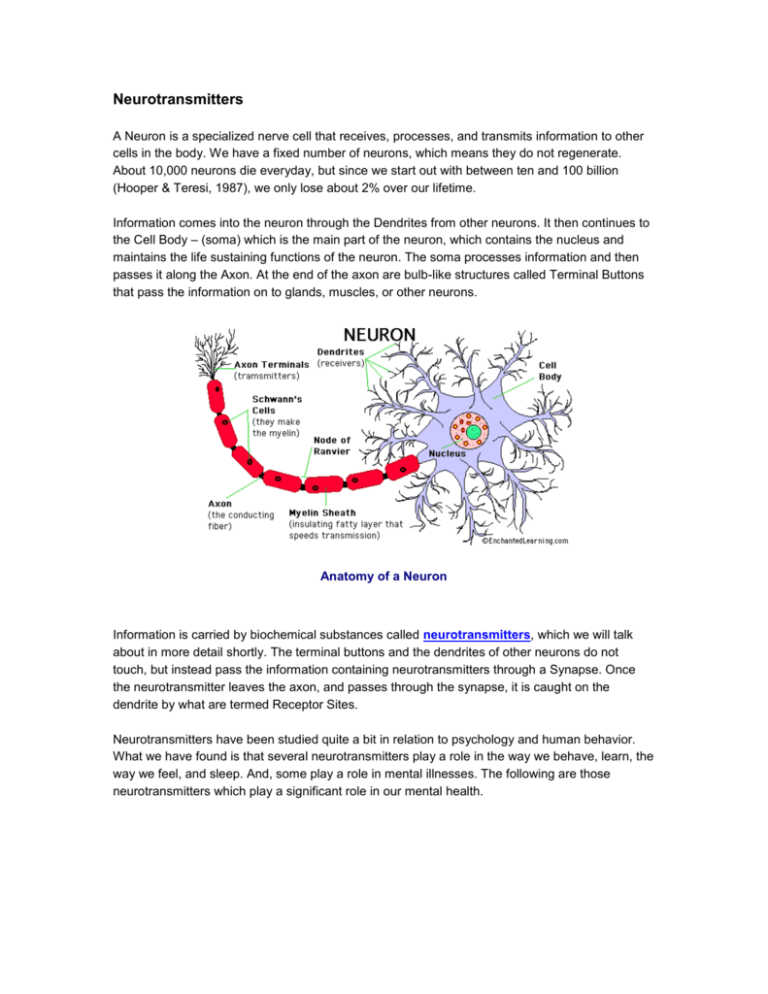
Neurotransmitters A Neuron is a specialized nerve cell that receives, processes, and transmits information to other cells in the body. We have a fixed number of neurons, which means they do not regenerate. About 10,000 neurons die everyday, but since we start out with between ten and 100 billion (Hooper & Teresi, 1987), we only lose about 2% over our lifetime. Information comes into the neuron through the Dendrites from other neurons. It then continues to the Cell Body – (soma) which is the main part of the neuron, which contains the nucleus and maintains the life sustaining functions of the neuron. The soma processes information and then passes it along the Axon. At the end of the axon are bulb-like structures called Terminal Buttons that pass the information on to glands, muscles, or other neurons. Anatomy of a Neuron Information is carried by biochemical substances called neurotransmitters, which we will talk about in more detail shortly. The terminal buttons and the dendrites of other neurons do not touch, but instead pass the information containing neurotransmitters through a Synapse. Once the neurotransmitter leaves the axon, and passes through the synapse, it is caught on the dendrite by what are termed Receptor Sites. Neurotransmitters have been studied quite a bit in relation to psychology and human behavior. What we have found is that several neurotransmitters play a role in the way we behave, learn, the way we feel, and sleep. And, some play a role in mental illnesses. The following are those neurotransmitters which play a significant role in our mental health. Acetylcholine – involved in voluntary movement, learning, memory, and sleep * Too much acetylcholine is associated with depression, and too little in the hippocampus has been associated with dementia. Dopamine – correlated with movement, attention, and learning * Too much dopamine has been associated with schizophrenia, and too little is associated with some forms of depression as well as the muscular rigidity and tremors found in Parkinson’s disease. Norepinephrine – associated with eating, alertness * Too little norepinephrine has been associated with depression, while an excess has been associated with schizophrenia. Epinephrine – involved in energy, and glucose metabolism * Too little epinephrine has been associated with depression. Serotonin – plays a role in mood, sleep, appetite, and impulsive and aggressive behavior * Too little serotonin is associated with depression and some anxiety disorders, especially obsessive-compulsive disorder. Some antidepressant medications increase the availability of serotonin at the receptor sites. GABA (Gamma-Amino Butyric Acid) – inhibits excitation and anxiety * Too little GABA is associated with anxiety and anxiety disorders. Some anti-anxiety medication increases GABA at the receptor sites. Endorphins – involved in pain relief and feelings of pleasure and contentedness Please note that these associations are merely correlations, and do not necessarily demonstrate any cause and effect relationship. We don’t know what other variables may be affecting both the neurotransmitter and the mental illness, and we don’t know if the change in the neurotransmitter causes the illness, or the illness causes the change in the neurotransmitter.
